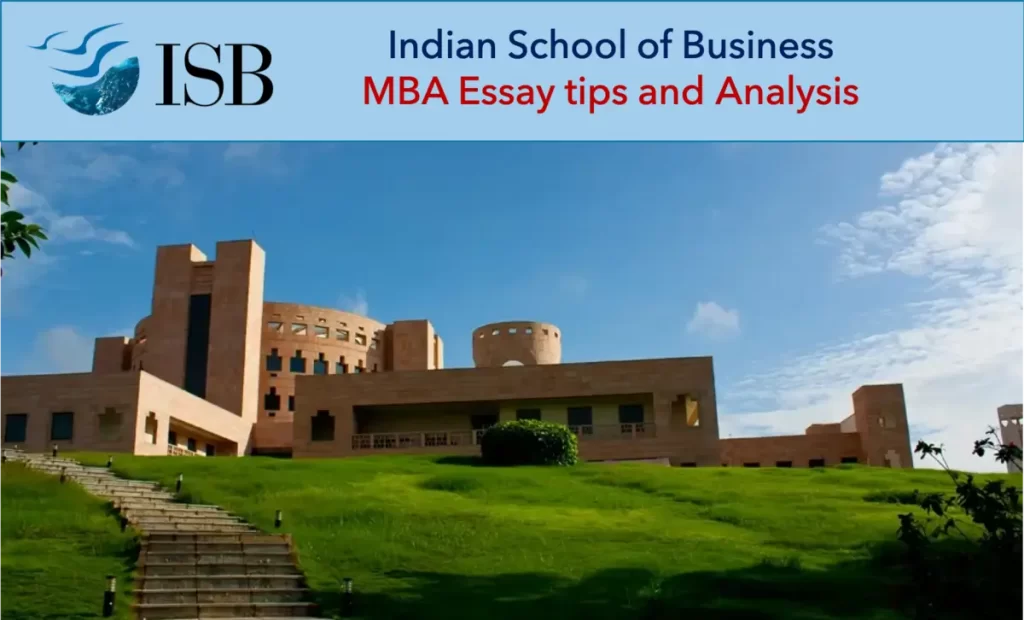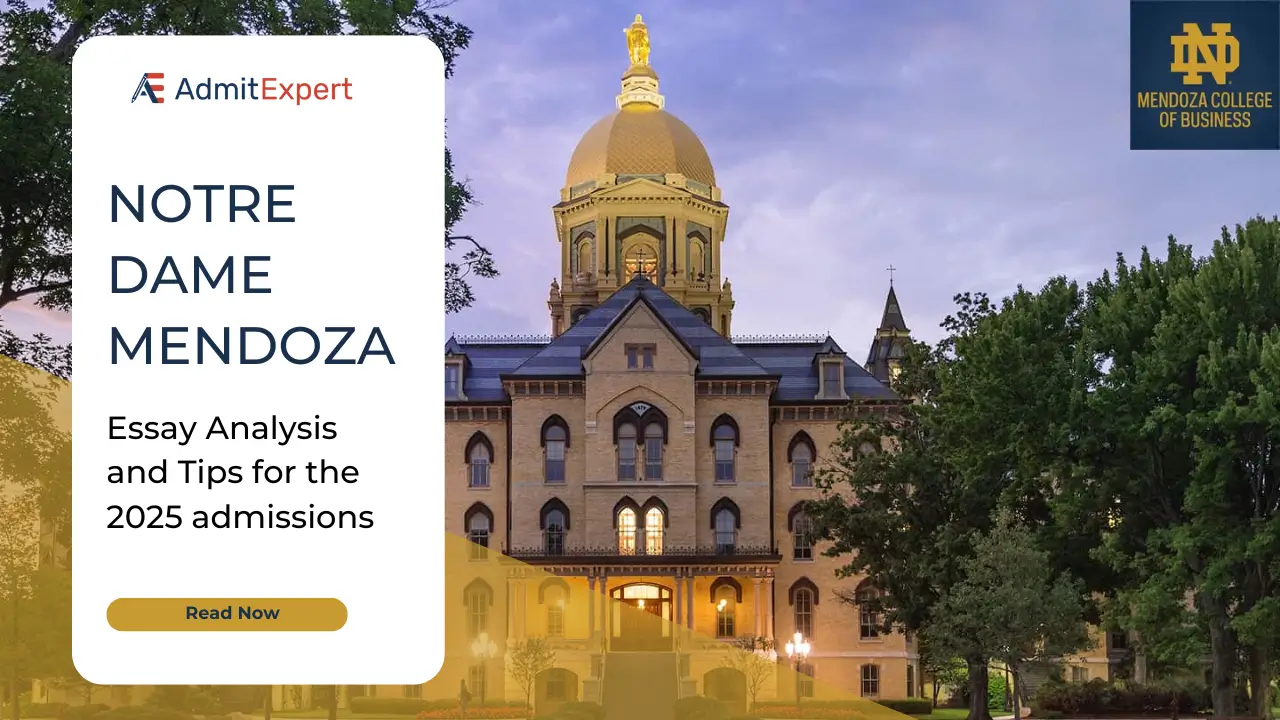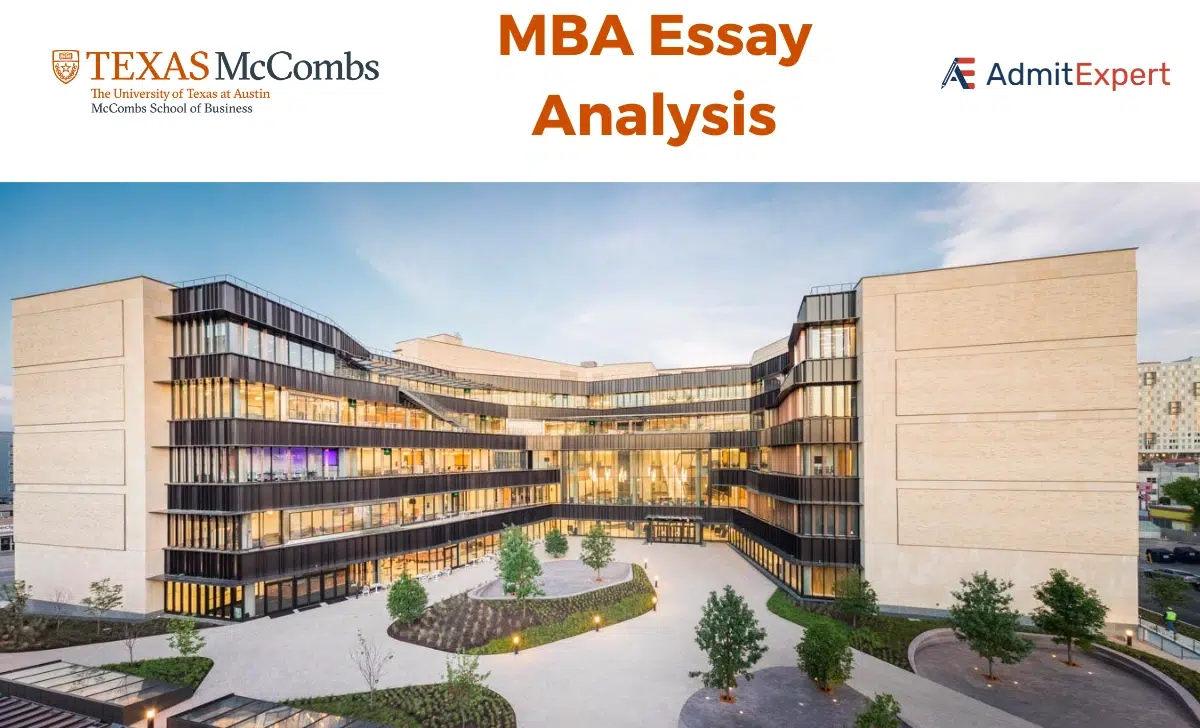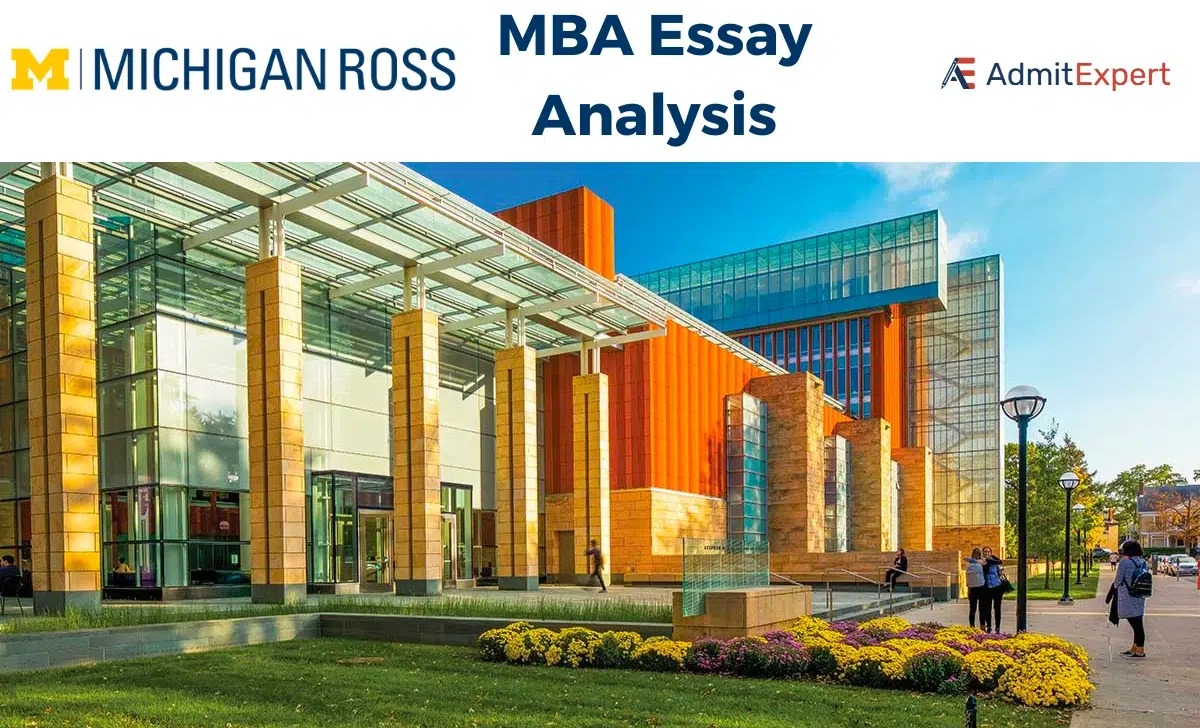The Indian School of Business (ISB) is one of the premier business schools in India, attracting top talent from around the world. The ISB admission process is highly competitive, and essays play a crucial role in the evaluation of applicants.
In this article, we will provide an in-depth analysis of the ISB essay questions for 2025 admissions, along with tips and strategies to help you craft a winning submission. With insights from ISB alumni and admissions experts, we will guide you through the essay-writing process and help you stand out from the crowd.
Whether you are a reapplicant or just starting your ISB PGP journey, this article will provide valuable insights to help you successfully navigate the ISB application process and help craft an impeccable ISB essay.

ISB Essay Prompts for 2025 Intake
Essay Topic 1: Contemplate situations that have shaped your personal journey. Present what these situations have taught you about your strengths and weaknesses, and how they have shaped your personal and professional journey. (400 words only)
Essay Topic 2: What intellectual experiences have influenced your approach to learning and have led you to pursue an MBA? Please describe using anecdotes from your own experiences. (400 words only)
Optional Essay: Given your experience and aspirations, how do you plan to use the PGP at ISB to fulfill your professional goals? (Optional) (250 words only)
For 2025 admissions, ISB has changed the essay topics. There are 3 essays and 2 of them are compulsory. You must answer those two essay prompts for the ISB PGP admissions for the 2025 intake (PGP). Both essays have a word restriction of 400 words. You must submit an additional reapplicant essay if you did not receive an admit in the ISB PGP 2024 intake or any previous admission cycle.
ISB PGP Essay 1 analysis
What ISB Admissions Committee Seeks
The ISB admissions committee is looking for authenticity and self-awareness in your response. They want to understand the experiences that have significantly impacted your life, revealing both your strengths and weaknesses. This essay is not just about listing achievements; it’s about demonstrating a mature understanding of yourself and how your experiences have shaped your character and aspirations.The committee is particularly interested in:
- Personal Growth: They want to see how you have evolved over time. Reflect on key moments that have influenced your values and decision-making processes.
- Self-Reflection: Your ability to critically assess your strengths and weaknesses is crucial. This reflection should be honest and insightful, showing that you are aware of areas where you excel and where you need improvement.
- Connection to Future Goals: How have these experiences prepared you for the challenges of an MBA program and your career thereafter? The committee is keen to see a clear link between your past experiences and your future aspirations.
Framework to Write a Winning Essay
To craft a compelling essay, follow this structured framework:
- Begin with self-reflection. Take time to think about pivotal moments in your life. These could be challenges you faced, successes you achieved, or even failures that taught you valuable lessons. Jot down these experiences and consider how they have influenced your personal and professional development.
- Next, select impactful stories. Choose 2-3 situations that best illustrate your journey. These stories should not only highlight your strengths but also reveal your vulnerabilities. For instance, if you overcame a significant challenge, discuss what you learned about resilience and adaptability.
- Then, articulate your strengths and weaknesses. Clearly define what you consider your strengths (e.g., leadership, collaboration, creativity) and relate them to your chosen stories. Similarly, be candid about your weaknesses. Discuss how these weaknesses have been areas of growth for you, demonstrating your willingness to learn and improve.
- Finally, connect your experiences to your future. Conclude your essay by linking your past experiences to your aspirations. Explain how the lessons learned from your journey will help you succeed in the ISB PGP program and beyond. This connection will show the admissions committee that you have a clear vision for your future.
Tips for Writing
When writing your essay, keep these tips in mind to enhance your chances of success:
- Be Authentic: Write in your voice. Authenticity resonates more than trying to fit a mold of what you think the committee wants to hear.
- Show, Don’t Just Tell: Use vivid examples and anecdotes to illustrate your points. Instead of stating that you are a good leader, narrate a specific instance where your leadership made a difference.
- Stay Within the Word Limit: The 400-word constraint is designed to encourage concise and impactful writing. Make every word count by avoiding unnecessary jargon and filler.
- Revise and Reflect: After drafting your essay, take a break before revising. This pause can provide you with fresh perspectives and insights into your writing.
- Seek Feedback: Share your essay with trusted friends or mentors who can provide constructive feedback. They may offer insights that you had not considered.
Essay 2
Understanding ISB’s Admissions Committee Expectations
When crafting your response to the ISB PGP essay prompt, “What intellectual experiences have influenced your approach to learning and have led you to pursue an MBA? Please describe using anecdotes from your own experiences,” it’s essential to recognize what the admissions committee is looking for. They want to understand your intellectual journey—the experiences that have shaped your mindset and learning style. This essay is not merely an opportunity to list achievements; rather, it is a chance to reflect on how specific experiences have informed your decision to pursue an MBA.The committee seeks candidates who demonstrate self-awareness and a clear understanding of their motivations. They want to see how your past experiences connect to your future aspirations and how an MBA fits into that narrative. By sharing personal anecdotes, you can provide insight into your unique perspective and intellectual curiosity, which are critical for success in a rigorous academic environment.
Framework for Writing a Winning Essay
To write a compelling essay, follow this structured framework:
- Start by thoroughly analyzing the essay prompt. Identify key themes such as “intellectual experiences,” “approach to learning,” and “motivation for an MBA.” Understanding these elements will guide your narrative.
- Next, engage in self-reflection. List significant intellectual experiences that have shaped your learning—this could include influential courses, projects, or discussions. Look for patterns that highlight your learning style and professional aspirations.
- From your list, select the most impactful experiences that directly relate to your decision to pursue an MBA. These should resonate personally and illustrate your academic and professional journey effectively.
- Once you have your experiences, develop a structured outline. Begin with an introduction that sets the stage for your intellectual journey. In the body, detail each selected experience, describing the context, lessons learned, and their influence on your learning approach. Conclude by summarizing how these experiences have led you to the decision to pursue an MBA, linking it to your career goals.
- As you write, focus on crafting a compelling narrative. Use anecdotes to bring your experiences to life, providing specific details that illustrate your insights. This approach not only makes your essay more engaging but also showcases your critical thinking and reflective abilities.
- Finally, explicitly relate your experiences to ISB. Highlight how the school’s curriculum and community align with your learning style and aspirations. Mention specific programs or aspects of ISB that resonate with you, and outline how you plan to contribute to the community based on your intellectual experiences.
Tips for Writing Your Essay
When writing your essay, keep these tips in mind to enhance its effectiveness:
- Be Authentic: Use your unique voice and personal experiences to stand out. Avoid generic responses and clichés; authenticity resonates more with the admissions committee.
- Stay Focused: Ensure that every part of your essay directly addresses the prompt. It’s easy to veer off-topic, but staying focused will help maintain clarity and coherence.
- Be Concise: With a 400-word limit, every word counts. Aim for succinctness while still providing enough detail to enrich your narrative. Avoid unnecessary filler and get straight to the point.
- Engage the Reader: Start with a compelling opening that captures attention. A strong introduction can set the tone for the rest of your essay and draw the reader in.
- Reflect Deeply: Show introspection by discussing not just what you learned but how it has shaped your approach to learning and your decision to pursue an MBA. This depth of reflection can set you apart.
- Proofread: Finally, ensure your essay is free from grammatical errors and typos. A polished essay reflects your professionalism and attention to detail.
Essay 3 (Optional)
Given your experience and aspirations, how do you plan to use the PGP at ISB to fulfill your professional goals? (Optional) (250 words only)
This is an optional essay. Most likely because this is something that’s discussed in detail during the interviews anyway. However, you need to treat this as a mandatory essay and give it equal importance as the other 2 essays.
This essay is your opportunity to show how important ISB is to you and where ISB fits into your overall plan. Showcase your genuine enthusiasm for and alignment with the ISB PGP program in this essay.
To craft a compelling narrative, we suggest following this framework:
- Reflect on your previous experience: The skills, knowledge and accomplishments you have so far through your work experience
- Define your future aspirations: What specific role or industry do you wish to work in? What impact do you want to make in the future? Be very specific about your short term goals at the very least
- Identify gaps: Based on the above 2 points, identify your weak areas or areas you need to work on to reach your goals
- Research the ISB PGP program: Curriculum, faculty, clubs, extracurricular activities, industry connections, network, experiential learning etc. Identify the key features and strengths of the program that align with your goals
- Link program features to your goals: For example, if you wish to work in consulting, highlight how the program’s case study methodology, consulting clubs and access to industry experts will enhance your consulting skills and network
- Highlight the fit: Emphasize why it is the ideal program to help you achieve your goals
To make the most of this limited space, it is imperative that you convey your sincere interest in joining ISB. Avoid formulating goals solely based on their popularity or appeal. Instead, focus on showcasing your authenticity. Discuss goals and career paths that genuinely resonate with you, allowing you to substantiate it during the interview.
Reapplicant essay
You do not need to write the reapplicant essay if you applied through the Young Leaders Programme (YLP).
Candidates who applied to ISB in past years must produce an essay describing how their profile has improved during this time.
If you applied in R1 last year and are applying in R1 this year, you have almost a year to plan anew. Recapitulate all of your efforts to improve your profile.
If you applied in R2 last year and are now applying in R1, you have only had about 8 months, which may or may not reflect significant changes in your profile.
This is your best chance to show the school that you did some introspection to get a new viewpoint and that you improved your eligibility by upskilling or working on new projects.
Discuss new projects, new learnings from these projects, things you got to do for the first time, and interactions that impacted you and your career plans. Don’t forget to include experiences that helped you improve your core and soft skills.
If you presented a career goal last year that you were unable to justify in the interview, or if you have decided to pursue an alternative plan that you can validate, do not be afraid to make a statement.
Through this essay, you get a chance to prove to the ISB admissions committee that you were able to understand what went wrong the last time and that you made significant improvements in your profile based on those gaps in your profile.
We, at Admit Expert, have ISB admissions experts who can help you with your essay and overall application. Write to us at contactus@admitexpert.com to know more.




